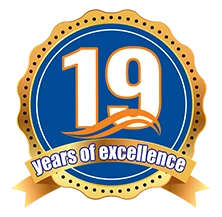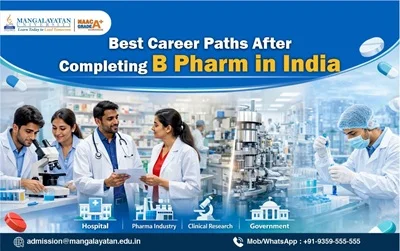B.Sc. MLT and B.Sc. OTT Courses in India: A Comprehensive Overview and Future Scope
The healthcare industry in India has been witnessing rapid growth and transformation, driven by advancements in medical technology and an increasing demand for quality healthcare services. Among the myriad of professional courses available, the Bachelor of Science (B.Sc.) in Medical Lab Technology (MLT) and B.Sc. in Operation Theatre Technology (OTT) stand out as pivotal programs that play crucial roles in the functioning of modern healthcare facilities. This article delves into these courses, their curricula, and the prospects for graduates.
B.Sc. Medical Lab Technology (MLT) Course Details:
The B.Sc. MLT full form is Bachelor of Science in Medical Laboratory Technology. B.Sc MLT admission is designed to equip students with the knowledge and skills required to perform complex laboratory tests and analyses that assist in diagnosing, treating, and preventing diseases. The curriculum encompasses a blend of theoretical knowledge and practical training in clinical biochemistry, microbiology, haematology, immunology, and pathology.B.Sc Medical Lab Technology is a three-year undergraduate program.
Core Subjects:
- Clinical Biochemistry: Understanding the biochemical processes within the human body and conducting tests to detect abnormalities.
- Microbiology: Studying microorganisms, their effects on humans, and laboratory techniques to identify infections.
- Haematology: Analysing blood samples to diagnose anaemia, leukaemia, and clotting disorders.
- Pathology: Investigating disease mechanisms through the examination of tissues, organs, and bodily fluids.
- Immunology: Exploring the immune system and conducting tests related to immune responses and disorders.
Eligibility for BSc. MLT
High School Education: Candidates should have completed their 10+2 education (or equivalent) from a recognized board.
Subject Requirements: They must have studied Physics, Chemistry, and Biology (PCB) during their 10+2 education. Some institutions might also accept students with Physics, Chemistry, Biology, and Mathematics (PCBM).
Career Prospects:
Graduates of B.Sc. MLT have a wide array of career opportunities in both the public and private sectors. They can work as medical lab technologists in hospitals, diagnostic centers, research laboratories, and pharmaceutical companies. Other potential roles include quality control analyst, lab manager, and consultant for medical equipment companies. The demand for skilled lab technologists is on the rise, driven by the growing emphasis on accurate diagnostics and personalised medicine.
Future Scope:
B.Sc mlt admission has a promising career for graduates. With advancements in diagnostic technologies such as molecular diagnostics and bioinformatics, there is a continuous need for professionals adept at handling sophisticated laboratory equipment and interpreting complex data. Additionally, the increasing prevalence of chronic diseases and the expansion of healthcare infrastructure in India ensure sustained demand for medical lab technologists.
Read Also - Career Scope of B.Sc. Medical Laboratory Technology Course
B.Sc. Operation Theatre Technology (OTT) Course Details
The B.Sc. OTT full form is Bachelor of Science in Operation Theatre Technology. B.Sc.. Operation Theatre Technology course is a three-year undergraduate program focused on training students to become proficient in managing the operation theatre environment. The course prepares students to handle various tasks, including surgical procedures, sterilisation processes, and ensuring the smooth functioning of the operating theatre.
Core Subjects:
- Anatomy and Physiology: Comprehensive study of the human body and its functions.
- Surgical Procedures: Detailed understanding of different types of surgeries and the role of an OTT professional in each.
- Anesthesia Technology: Techniques and protocols for administering anaesthesia and monitoring patients.
- Sterilization Techniques: Methods to ensure a sterile environment in the operating theatre to prevent infections.
- Patient Care: Preoperative and postoperative care, ensuring patient safety and comfort.
Career Prospects:
Graduates of B.Sc. OTT can pursue careers as operating theatre technicians, surgical assistants, anaesthesia technologists, and OT in charge in hospitals, surgical centres, and trauma care units. They can also work in medical equipment manufacturing companies, contributing to the design and development of operating theatre instruments and devices.
Future Scope:
The future outlook for B.Sc. OTT graduates are equally bright. With the increasing number of surgical procedures and advancements in minimally invasive surgeries, the need for skilled operating theatre technologists is growing. The healthcare sector's expansion, coupled with the government's initiatives to improve healthcare services in rural and urban areas, further amplifies the demand for these professionals.
Read Also - Best Options in Paramedical Courses after 10+2
Comparative Analysis
Both B.Sc. MLT and B.Sc. OTT are integral to the healthcare system, each addressing distinct but crucial aspects of medical services.
- B.Sc. MLT focuses on diagnostic and laboratory analysis,
- B.Sc. OTT centres on the operational aspects of surgical care.
The choice between the two depends largely on individual interests— whether one prefers working behind the scenes in a lab or being actively involved in the surgical environment.
The future scope for both courses is robust, fueled by technological advancements, increased healthcare spending, and a growing emphasis on quality medical care. Graduates can look forward to rewarding careers with opportunities for further specialization and professional growth. Moreover, the healthcare industry's resilience and its critical role in society underscore the enduring relevance and importance of these professions.
Conclusion
Pursuing a B.Sc. in Medical Lab Technology or Operation Theatre Technology in India offers a promising career path with diverse opportunities and the potential to make significant contributions to the healthcare sector. As the industry continues to evolve, the demand for skilled professionals in these fields will remain strong, ensuring a bright future for graduates.

.webp)




